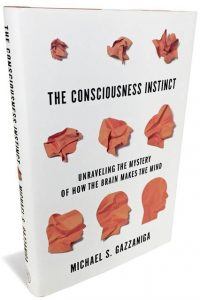Eliezer J. Sternberg in the Washington Post:
 Three decades after being awarded the Nobel Prize for his discovery of DNA, Francis Crick wrote a book about consciousness, “The Astonishing Hypothesis: The Scientific Search for the Soul.” It was momentous: A world-renowned scientist had decided to directly confront the mind/body problem, the centuries-old challenge of reconciling the brain, a gelatinous mass of physical tissue, and human consciousness, the realm of emotion, volition and boundless imagination. Crick’s contention that the human mind arises from neurons in the brain rather than from an ineffable soul is perhaps less astonishing today, when this premise is nearly universally accepted among neuroscientists. But it still hints at something remarkable about Crick’s own mind. Why would a Nobel-winning scientist, already credited with discovering the secret of life, decide to switch gears and focus on an inquiry not only in a different field but so scientifically impenetrable as to have earned nicknames like “the hard problem” and “the last great mystery of science?” Crick answered this question with “what I called the gossip test: What you’re really interested in is what you gossip about. Gossip is things you’re interested in, but you don’t know much about.” In short: genuine curiosity.
Three decades after being awarded the Nobel Prize for his discovery of DNA, Francis Crick wrote a book about consciousness, “The Astonishing Hypothesis: The Scientific Search for the Soul.” It was momentous: A world-renowned scientist had decided to directly confront the mind/body problem, the centuries-old challenge of reconciling the brain, a gelatinous mass of physical tissue, and human consciousness, the realm of emotion, volition and boundless imagination. Crick’s contention that the human mind arises from neurons in the brain rather than from an ineffable soul is perhaps less astonishing today, when this premise is nearly universally accepted among neuroscientists. But it still hints at something remarkable about Crick’s own mind. Why would a Nobel-winning scientist, already credited with discovering the secret of life, decide to switch gears and focus on an inquiry not only in a different field but so scientifically impenetrable as to have earned nicknames like “the hard problem” and “the last great mystery of science?” Crick answered this question with “what I called the gossip test: What you’re really interested in is what you gossip about. Gossip is things you’re interested in, but you don’t know much about.” In short: genuine curiosity.
As one of the greatest neuroscientists living today, Michael S. Gazzaniga could have similarly rested on his laurels. He helped craft the modern understanding of the differences between the cerebral hemispheres.
More here.
